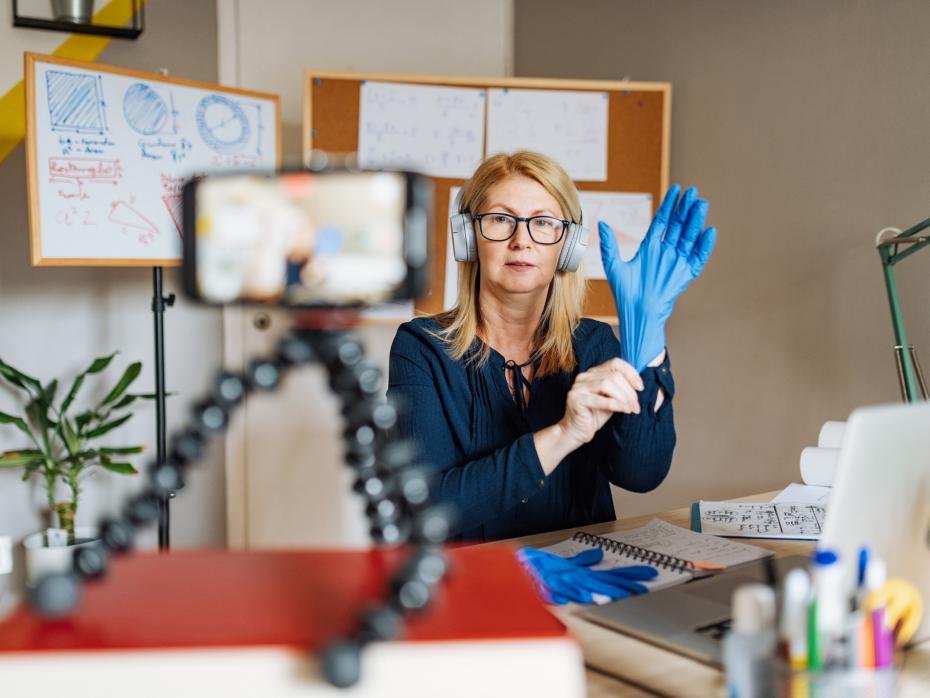As educators it’s important to understand the role of self-efficacy in student learning, as classroom discussions that are either too theory-based or too abstract distance students from personal experiences and risk leaving them disengaged. In my teaching practice, I use family experiences as a lens to teach management and organisational behaviour. This approach could also work across many other disciplines.
Student experiences as a bridge for learning
The way many families operate is not wildly different from how organisations operate so bringing in students’ family experiences can help them understand what organisations do, providing an alternative approach to reflective learning and teaching. Students will be more likely to bridge the perceived gap between their academic learning and their real-life experiences if the subject is personally relevant to them. And talking about family experiences is often more natural for students than discussing, for example, a case study about an unknown organisation.
Students without prior work experience can only make sense of what they study at university through reflection, which will be through their own lens anyway. An effective way for educators to help students learn may be to teach them how to make connections between theoretical concepts and their own experiences
- Eight tips for making teaching and learning more enjoyable for learners
- Seven questions about storytelling in the classroom
- Advice for lecturers on how to keep students’ attention
Asking students to reflect requires them to have experiences to which they can relate and apply their learning. And these experiences need to be their own. Without their experiences becoming a central point of discussion, their learning could be left incomplete.
Value students’ experiences
Often students will say, “But I don’t have any experience.” According to Alice and David Kolb’s 2005 paper “Learning styles and learning spaces: enhancing experiential learning in higher education”, this is because they do not believe their experience is of any value and cannot help them understand theoretical concepts discussed in class. As a result, they either find these concepts useless or use them to score high marks in the course – not the same as learning to develop and critique experiences.
The first step towards educating students should be to show them how they all have experiences they can use for learning.
This will help them understand the concepts themselves and why we teach them this way, grounding them in real-world settings. You might find students enjoy the opportunity to bring up issues they may be experiencing in their personal lives. They can also see how specific models help them better understand their experiences and explore different ways of resolving challenges. The point is to help learners develop a thinking mind that looks for mechanisms, such as theoretical lenses, to peel back the layers of their experiences like an onion.
Help students engage
What’s important is that students actively engage in discussion when the ideas relate to their life, family and daily routines. From here, introduce concepts and link them to scenarios.
Doing it the other way around – discussing abstract examples first – detaches students from the topic. They focus on what educators want to hear from them and not on what they think should be their answer. They don’t, or can’t, find their voice because they don’t feel empowered to have a voice – or even know what that voice is.
In classes where student experiences are discussed, shared and analysed, educators can support their student’s learning experiences with relevant theoretical material. Humans naturally learn from one another to understand their experiences.
Your role is to connect the students’ lived experiences with those from the world of work through examples, case studies and course content. After graduating, students will not be able to see the value of theoretical frameworks if they do not have a mechanism to link them to their workplace experience.
An approach based on family or students’ own experiences in class discussions narrows the gap between theory and practice, making education enriching and personal for the students and enabling them to learn and develop tacitly.
Ankit Agarwal is course coordinator and lecturer in management at the Adelaide Business School.
If you would like advice and insight from academics and university staff delivered direct to your inbox each week, sign up for the Campus newsletter.




comment